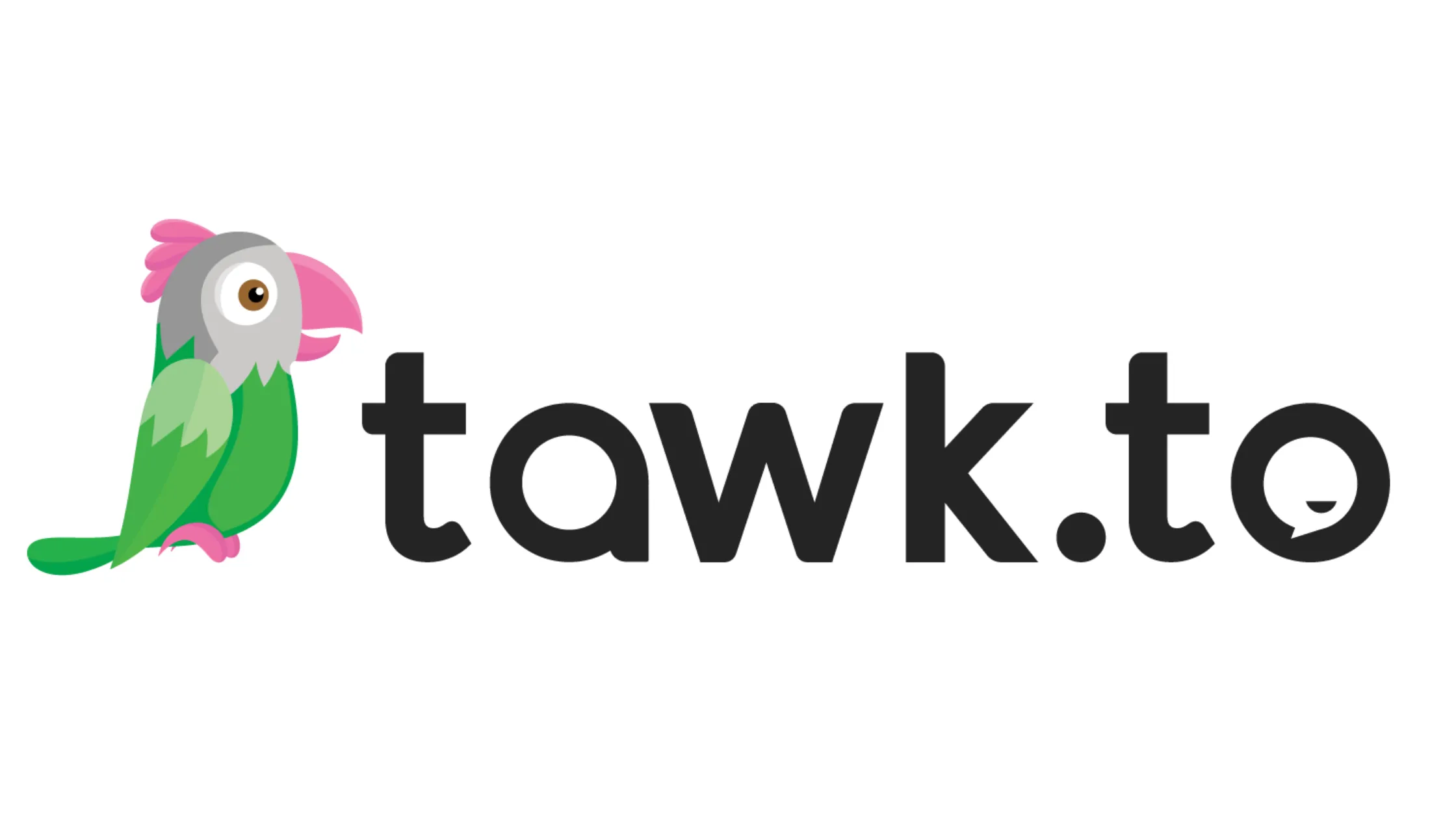
What is Venture Capital (VC)?
Learn how venture capital works, its benefits, and how to attract investors as a startup founder. Understand the VC process from a beginner’s perspective.
So, you’ve got a brilliant startup idea, but now you're asking yourself: how do I fund it? If you're reading this, chances are you've heard about venture capital (VC) but aren’t quite sure how it works or if it’s right for your startup. You’re not alone. Many first-time founders find VC intimidating or confusing at first glance. But don’t worry—by the end of this guide, you’ll have a solid understanding of what venture capital is and whether it’s the right fit for your startup.
At Horizon Labs, we've worked closely with early-stage startups, some of which have gone through Y Combinator (like Flair Labs, Bloom, and Arketa). We’ve seen firsthand the power of venture capital when applied strategically. Whether you’re in the ideation stage or nearing product-market fit, understanding VC could be a game-changer for scaling your business.
What is Venture Capital?
Venture capital is a form of private equity where investors—known as venture capitalists—provide funding to early-stage startups with high growth potential. In exchange, these investors receive equity (ownership) in the company. The goal for VCs is to make a return on their investment when the startup eventually exits, typically through an acquisition or IPO.
Why Do Startups Turn to VC?
Startups often turn to venture capital for one main reason: growth. VC firms invest in businesses they believe can grow rapidly and become highly valuable. In the tech world, this often means software, healthtech, or marketplace startups. With VC funding, startups can:
- Scale quickly by hiring talent, building out technology, and expanding into new markets.
- Survive the often cash-intensive period between launching a product and generating significant revenue.
- Gain access to experienced mentors and networks, which can lead to more opportunities and further investment.
The Trade-Offs of Taking VC Money
But there’s a catch. By taking venture capital, you’re giving up a portion of your company’s equity and often some degree of control. Many VCs will want a say in how you run your company, especially if things aren’t going as planned.
Additionally, VCs are typically looking for huge returns. This can push you toward rapid growth strategies that might not align with your long-term vision. Before diving in, it’s crucial to ask yourself if this fast-growth, high-risk path is right for your business. Not every startup needs or wants VC funding, and that's perfectly okay.
Different Stages of Venture Capital
Now that you have a general idea of what venture capital is, let's break it down into the different stages of funding you might encounter.
Pre-Seed and Seed Funding
Pre-seed and seed rounds are typically the earliest stages of venture capital investment. At the pre-seed stage, you might not even have a product yet—just an idea and maybe a team. Seed funding is usually the next step, where you have an MVP (minimum viable product) and need capital to validate the market.
- Pre-Seed: Often raised from friends, family, angel investors, or pre-seed funds. You’ll use this money to build your MVP.
- Seed: Typically raised from early-stage VCs or angel investors. Use this funding to test your product-market fit and start gathering traction.
At Horizon Labs, we often see startups at this stage come to us for help building prototypes or MVPs that can be shown to investors. The key at this stage is proving that your idea has the potential to grow into something big.
Series A
Once you’ve found product-market fit and have some traction, you might start looking for a Series A round. This funding is typically larger and allows you to expand your product and grow your team. At this stage, investors want to see real evidence of growth and demand for your product.
- Series A: Raised from more established venture capital firms. The focus here is scaling—growing your user base, revenue, and operations.
Series B and Beyond
As you continue to scale, you might raise Series B, C, or even D rounds. By this point, you’re looking for capital to dominate your market, build brand recognition, and reach profitability.
- Series B: Focuses on expanding to new markets and scaling operations.
- Series C and beyond: Often raised for acquiring other companies, expanding globally, or preparing for an IPO.
How to Attract Venture Capital Investors
So, how do you actually get VCs to invest in your startup? It’s not just about having a great idea—it’s about having a great business. Here are some things VCs typically look for:
A Strong Team
VCs bet on the jockey as much as the horse. If your team has the right experience and a track record of execution, that’s a big plus.
A Big Market
VCs want to invest in startups with the potential to grow into massive markets. They’re not interested in niche products; they’re looking for companies that can scale.
Traction
Traction is one of the most convincing factors for a VC. Whether it’s revenue, user growth, or partnerships, having some momentum shows that your business has legs.
A Clear Exit Strategy
While you’re focused on building your company, VCs are thinking about how they’ll get a return on their investment. Having a clear path to acquisition or IPO is crucial.
Venture Capital Terms Every Founder Should Know
Before diving into VC negotiations, it's important to understand some basic terms. Here are a few you should familiarize yourself with:
- Term Sheet: A non-binding agreement outlining the terms and conditions of an investment.
- Valuation: The value investors place on your company. This determines how much equity you’ll give up in exchange for their investment.
- Dilution: As you raise more funding, your ownership in the company decreases.
- Cap Table: A spreadsheet that shows the ownership stakes in your company, including founders, employees, and investors.
Key Advantages of Venture Capital for Startups
While venture capital isn’t the right choice for every startup, it does offer some significant advantages for those that pursue it. Here are a few of the most important benefits:
Access to Larger Sums of Capital
One of the primary benefits of venture capital is the sheer amount of funding available. If you’re aiming to scale quickly, a VC round can provide you with the capital to expand your team, increase marketing efforts, or even enter new markets.
Strategic Guidance and Mentorship
In addition to capital, many venture capitalists come with a wealth of experience and connections in the industry. They often act as advisors, helping founders make crucial decisions and avoid common pitfalls. VCs can open doors to partnerships, talent, and additional investors, accelerating your company’s growth beyond just financial support.
Validation and Credibility
Securing a venture capital round can act as a stamp of validation for your startup. It signals to other investors, customers, and potential employees that your company has the backing of experienced professionals who believe in its potential. This can make it easier to attract top-tier talent, close larger deals, and secure follow-on funding rounds.
Challenges of Raising Venture Capital
While venture capital can be transformative for startups, it’s not without its challenges. Founders need to weigh the potential downsides carefully before diving in.
Loss of Control
As we mentioned earlier, taking VC money often means giving up some control. Investors may want a seat on your board, influence over major decisions, or a say in how you spend their investment. This can sometimes conflict with the founder’s original vision, especially if growth doesn’t happen as quickly as expected.
Pressure to Scale
VCs are looking for high returns, which usually means rapid scaling. For some startups, this pressure can lead to unsustainable growth strategies, where the focus shifts away from building a solid foundation to simply expanding at all costs. Founders should be cautious not to sacrifice long-term stability for short-term gains.
Dilution of Ownership
Each round of funding dilutes your ownership of the company. While this is a natural part of raising capital, it’s important to understand just how much equity you’re giving up in exchange for investment. Over several rounds of fundraising, founders can end up with a much smaller piece of the pie.
When Should You Consider Venture Capital?
Deciding whether to pursue venture capital depends on your startup’s goals and stage of development. Here are a few indicators that VC might be the right path for you:
- You have a scalable business model: If your product or service has the potential to reach millions (or even billions) of customers, VC can help you get there faster.
- You need significant capital to grow: Some businesses, especially in sectors like healthtech, SaaS, and marketplaces, require large amounts of capital to build and scale. If you can’t bootstrap or rely on customer revenue alone, VC might be necessary.
- You’re prepared for rapid growth: If your goal is to grow as quickly as possible and you’re willing to take on the risks associated with it, VC could be a good fit.
- You’re open to giving up equity: If you’re comfortable sharing ownership and control of your business in exchange for capital and mentorship, VC might be worth exploring.
Alternatives to Venture Capital
Venture capital is just one of many funding options available to startups. Depending on your goals and the nature of your business, you might want to explore other funding avenues as well.
Bootstrapping
Bootstrapping means funding your business using personal savings or revenue from early sales. While it may limit how fast you can grow, it allows you to retain full control of your company and avoid dilution.
Angel Investors
Angel investors are individuals who invest their own money into startups, often at the seed stage. While they usually invest smaller amounts than VCs, they can be a valuable source of early-stage capital and mentorship.
Crowdfunding
Platforms like Kickstarter and Indiegogo allow startups to raise money from a large number of people. Crowdfunding can be an excellent way to validate your idea and build a community around your product before launching.
Grants and Competitions
Some startups, particularly in sectors like healthtech and cleantech, may be eligible for grants from governments or non-profit organizations. Similarly, startup competitions can offer prize money and exposure without giving up equity.
Horizon Labs: Helping You Navigate the VC Landscape
At Horizon Labs, we’ve worked with a variety of venture-backed startups across healthtech, AI, e-commerce, and SaaS. Our team has been in the trenches, helping founders build the technology they need to impress investors and raise funding. Whether you’re working on your MVP, scaling your product, or preparing for a pitch, we’re here to make sure your tech stack is rock solid.
Founders need a tech partner who understands the unique pressures of raising VC funding, and that’s where we excel. With our experienced team in California and Turkey, we help you build quickly without sacrificing quality—so you can focus on scaling your business.
If you’re ready to take your startup to the next level, contact us at info@horizon-labs.co or schedule a call at horizon-labs.co/contact to see how we can help you build faster, better, and cheaper than the competition.
Frequently Asked Questions (FAQs) about Venture Capital (VC):
Q: How do venture capital firms decide which startups to invest in?
A: Venture capital firms typically look at a combination of factors when deciding to invest, including the strength of the founding team, the size and potential of the market, early traction or proof of concept, and the competitive landscape. They also assess the scalability of the business model and the likelihood of a successful exit through acquisition or IPO.
Q: What is the typical structure of a VC deal?
A: A typical VC deal involves an equity investment, where the venture capital firm provides funding in exchange for ownership (shares) in the startup. The deal is often structured with preferred shares, giving VCs priority over common shareholders in certain scenarios, such as liquidation. The deal also includes key terms such as valuation, dilution protections, and board representation.
Q: What is a lead investor in venture capital?
A: A lead investor is the venture capitalist or firm that leads the funding round. They typically commit the largest portion of the round and set the terms of the deal. The lead investor often takes an active role in helping the startup grow, providing strategic advice, and sometimes taking a seat on the board of directors.
Q: How long does it usually take to raise venture capital?
A: Raising venture capital can take anywhere from a few months to a year, depending on factors like the startup's stage, the amount being raised, and the market conditions. Founders should expect multiple rounds of meetings with different firms, extensive due diligence, and negotiations on terms. It's important to begin fundraising well before the startup runs out of cash to avoid pressure.
Q: What happens after a startup raises venture capital?
A: After raising venture capital, the startup typically accelerates growth by hiring new talent, expanding operations, or investing in product development. In addition to the capital, VCs often provide strategic guidance, help with recruiting, and make introductions to key partners and customers. However, there may also be increased pressure to meet growth targets and prepare for the next funding round or an exit.
Q: What is the difference between venture capital and angel investment?
A: Angel investors are typically individuals who invest their own money into early-stage startups, while venture capital firms manage pooled funds from various investors. Angels often invest smaller amounts compared to VCs and tend to focus on the seed stage, while VCs invest larger sums in more mature startups that have demonstrated some traction.
Q: What are venture capital funds’ exit strategies?
A: VC firms aim to make a return on their investment through an exit event, which is usually an acquisition of the startup by a larger company or an initial public offering (IPO). In some cases, a private equity firm might buy out the VC’s stake. The timeline for an exit is typically five to ten years after the initial investment, though this can vary based on market conditions and the startup’s performance.
Q: Do all startups need venture capital to succeed?
A: No, not all startups need venture capital. Many successful companies have bootstrapped or relied on alternative funding sources such as revenue, grants, angel investment, or crowdfunding. Venture capital is best suited for businesses that require substantial capital to scale rapidly, but it's not the only path to success. Some founders prefer to retain control and ownership by avoiding external investment.
Q: What types of industries are most attractive to venture capitalists?
A: Venture capitalists typically look for startups in industries with high growth potential and scalable business models. These include sectors like technology (software, AI, cybersecurity), healthtech (biotech, medtech, digital health), fintech, e-commerce, and marketplaces. Industries undergoing significant innovation or disruption tend to attract the most VC interest, especially those that offer large market opportunities and the potential for rapid scaling.
Q: How do venture capitalists make money?
A: Venture capitalists make money through the eventual sale of their equity in a startup, typically through an acquisition or initial public offering (IPO). When a company they invested in grows in value, their shares become worth significantly more than their initial investment. VCs also charge their investors a management fee and may earn a percentage of the profits from successful investments, known as "carried interest."
Q: What is a convertible note, and how does it relate to venture capital?
A: A convertible note is a type of short-term debt that converts into equity during a future funding round, usually at a discount or with added interest. Startups often use convertible notes in early-stage fundraising because they allow investors to provide capital without needing to set a valuation for the company upfront. This is commonly used in seed or bridge rounds before raising a larger VC round.
Q: What are the risks for startups taking venture capital?
A: The risks for startups taking venture capital include loss of control, dilution of ownership, and increased pressure to meet aggressive growth targets. Founders may also face the risk of misaligned priorities with investors, who may push for faster scaling or an earlier exit than the founders had planned. Additionally, startups that take VC often have a narrow window to achieve the kind of growth needed to secure future rounds of funding or exit opportunities.
Q: What is vesting, and how does it impact founders and employees in venture-backed startups?
A: Vesting refers to the process by which founders, employees, or investors earn ownership of shares over time, rather than all at once. For example, a common vesting schedule for employee stock options might be four years, with a one-year cliff, meaning the employee must stay with the company for at least a year before any shares vest, after which shares vest monthly. Vesting ensures that stakeholders remain committed to the company over the long term and is often used as a retention tool.
Q: Can venture capitalists invest in multiple rounds of funding?
A: Yes, venture capitalists often participate in multiple rounds of funding for a single startup. If a VC firm believes strongly in a company's long-term potential, they may lead or join follow-on rounds, such as Series A, B, or C, to continue supporting the startup’s growth. This strategy allows them to maintain or increase their equity stake and potentially gain a larger return when the company exits.
Q: How does venture capital affect company culture?
A: Venture capital can have a significant impact on company culture, especially as the business grows and scales rapidly. The influx of capital often brings an increased focus on performance metrics, targets, and timelines, which can shift the company’s internal dynamics. Additionally, VCs may push for hiring more experienced leadership or introducing new operational practices, which can change the startup’s original culture. Founders need to be mindful of maintaining their core values while navigating this growth.
Q: How much equity do startups typically give up in a venture capital round?
A: In early funding rounds like seed or Series A, startups typically give up between 15-30% of their equity, depending on the valuation and the amount of capital raised. Later rounds often involve smaller percentages of equity given up, but this can vary based on the size of the round and the startup’s growth stage. It’s important for founders to carefully negotiate terms to ensure they retain enough ownership and control of the company as they scale.
Q: Can a venture-backed startup raise funding from other sources?
A: Yes, a venture-backed startup can raise funding from multiple sources beyond VC. In fact, many startups secure capital through a combination of angel investors, corporate partnerships, grants, and loans. Additionally, revenue from operations and product sales can serve as a source of growth capital. Some startups even pursue venture debt, which allows them to raise funds without giving up additional equity.
Whether you're validating an idea, scaling an existing product, or need senior engineering support—We help companies build ideas into apps their customers will love (without the engineering headaches). US leadership with American & Turkish delivery teams you can trust.
Need Developers?
We help companies build ideas into apps their customers will love (without the engineering headaches). US leadership with American & Turkish delivery teams you can trust.
















For Startups & Founders
We've been founders ourselves and know how valuable the right communities, tools, and network can be, especially when bootstrapped. Here are a few that we recommend.

Mistakes to Avoid When Building Your First Product
Learn the key mistakes founders make when building their first product—and how to avoid them for a faster, smoother launch.
Read more
The Rise of AI in Product Development: What Startups Need to Know
Learn how AI is transforming product development for startups. From MVPs to scaling, here’s what founders need to know in today’s AI-driven world.
Read more
No-Code vs. Custom Development: Which is Right for Your Startup?
Weighing no-code vs. custom development? Learn which is right for your startup depending on stage, budget, and product complexity.
Read more
What is Mixpanel?
Learn how Mixpanel helps startups track user behavior to improve products and accelerate growth with clear data-driven insights.
Read more
How Tawk.to Can Boost Your Startup’s Customer Support Game
Learn how Tawk.to can benefit startups by enhancing customer support and engagement. Perfect for early-stage founders!
Read more
Grow Your Startup With Anthropic's AI-Powered Tools
Discover how Anthropic's cutting-edge AI tools can accelerate your startup's success. Learn about their benefits and see why they can be trusted by startups.
Read more
What is Data-Driven VC?
Learn what a data-driven VC means and how such investors can benefit your startup’s growth and fundraising journey.
Read more
What is Blockchain?
A beginner-friendly guide on blockchain for startup founders, covering key concepts, benefits, challenges, and how to leverage it effectively.
Read more
What is Cybersecurity?
Learn cybersecurity basics tailored for startup founders. Understand key risks, best practices, and how to protect your startup from tech threats.
Read more
What is Seedcamp?
Learn what Seedcamp is, how its European seed fund and accelerator program work, and how founders can use its capital, mentorship, and network to scale their st
Read more
What is AngelList?
AngelList is a prime platform connecting startup founders to investors, talent, and resources to accelerate early-stage growth.
Read more
What is 500 Startups?
Learn what 500 Startups (now 500 Global) is, how its accelerator and seed fund work, and when founders should consider it—plus tips for early-stage startups.
Read more.webp)